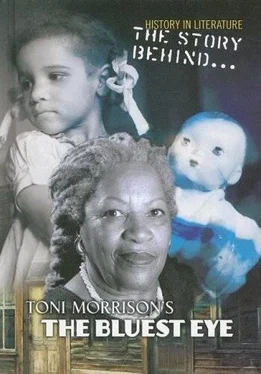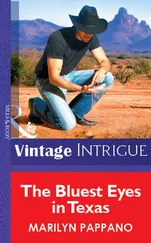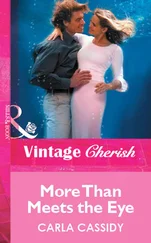"Three quarts of milk. That's what was in that icebox yesterday.
Three whole quarts. Now they ain't none. Not a drop. I don't mind folks coming in and getting what they want, but three quarts of milk! What the devil does anybody need with three quarts of milk?" The "folks" my mother was referring to was Pecola. The three of us, Pecola, Frieda, and I, listened to her downstairs in the kitchen fussing about the amount of milk Pecola had drunk. We knew she was fond of the Shirley Temple cup and took every opportunity to drink milk out of it just to handle and see sweet Shirley's face. My mother knew that Frieda and I hated milk and assumed Pecola drank it out of greediness. It was certainly not for us to "dispute" her. We didn't initiate talk with grown-ups; we answered their questions. Ashamed of the insults that were being heaped on our friend, we just sat there: I picked toe jam, Frieda cleaned her fingernails with her teeth, and Pecola finger-traced some scars on her knee-her head cocked to one side. My mother's fussing soliloquies always irritated and depressed us. They were interminable, insulting, and although indirect (Mama never named anybody-just talked about folks and some people), extremely painful in their thrust. She would go on like that for hours, connecting one offense to another until all of the things that chagrined her were spewed out. Then, having told everybody and everything off, she would burst into song and sing the rest of the day. But it was such a long time before the singing part came. In the meantime, our stomachs jellying and our necks burning, we listened, avoided each other's eyes, and picked toe jam or whatever. "… I don't know what I'm supposed to be running here, a charity ward, I guess. Time for me to get out of the giving line and get in the getting line. I guess I ain't supposed to have nothing. I'm supposed to end up in the poorhouse. Look like nothing I do is going to keep me out of there. Folks just spend all their time trying to figure out ways to send me to the poorhouse. I got about as much business with another mouth to feed as a cat has with side pockets. As if I don't have trouble enough trying to feed my own and keep out the poorhouse, now I got something else in here that's just going to drink me on in there. Well, naw, she ain't. Not long as I got strength in my body and a tongue in my head. There's a limit to everything. I ain't got nothing to just throw away. Don't nobody need three quarts of milk. Henry Ford don't need three quarts of milk. That's just downright «»ful. I'm willing to do what I can for folks. Can't nobody say I ain't. But this has got to stop, and I'm just the one to stop it. Bible say watch as well as pray. Folks just dump they children off on you and go on 'bout they business. Ain't nobody even peeped in here to see whether that child has a loaf of bread. Look like they would just peep in to see whether I had a loaf of bread to give her. But naw. That thought don't cross they mind. That old trifling Cholly been out of jail two whole days and ain't been here yet to see if his own child was 'live or dead. She could be dead for all he know. And that mama neither. What kind of something is that?" When Mama got around to Henry Ford and all those people who didn't care whether she had a loaf of bread, it was time to go. We wanted to miss the part about Roosevelt and the CCC camps. Frieda got up and started down the stairs. Pecola and I followed, making a wide arc to avoid the kitchen doorway.
We sat on the steps of the porch, where my mother's words could reach us only in spurts. It was a lonesome Saturday. The house smelled of Pels Naphtha and the sharp odor of mustard greens cooking. Saturdays were lonesome, tossy, soapy days. Second in misery only to those tight, starchy, cough-drop Sundays, so full of "don'ts" and "set'cha self downs." If my mother was in a singing mood, it wasn't so bad. She would sing about hard times, bad times, and somebody-donegoneandleft-me times. But her voice was so sweet and her singing-eyes so melty I found myself longing for those hard times, yearning to be grown without "a thin di-i-ime to my name." I looked forward to the delicious time when "my man" would leave me, when I would "hate to see that evening sun go down…" 'cause then I would know "my man has left this town." Misery colored by the greens and blues in my mother's voice took all of the grief out of the words and left me with a conviction that pain was not only endurable, it was sweet. But without song, those Saturdays sat on my head like a coal scuttle, and if Mama was fussing, as she was now, it was like somebody throwing stones at it. "… and here I am poor as a bowl of yak-me. What do they think I am? Some kind of Sandy Claus? Well, they can just take they stocking down 'cause it ain't Christmas…" We fidgeted. "Let's do something," Frieda said. "What do you want to do?" I asked. "I don't know. Nothing."
Frieda stared at the tops of the trees. Pecola looked at her feet. "You want to go up to Mr. Henry's room and look at his girlie magazines?" Frieda made an ugly face. She didn't like to look at dirty pictures. "Well," I continued, "we could look at his Bible. That's pretty." Frieda sucked her teeth and made iphttt sound with her lips. "O.K., then. We could go thread needles for the half-blind lady. She'll give us a penny." Frieda snorted. "Her eyes look like snot. I don't feel like looking at them. What you want to do Pecola?"
"I don't care," she said.
"Anything you want." I had another idea. "We could go up the alley and see what's in the trash cans."
"Too cold," said Frieda.
She was bored and irritable.
"I know. We could make some fudge."
"You kidding? With Mama in there fussing? When she starts fussing at the walls, you know she's gonna be at it all day. She wouldn't even let us."
"Well, let's go over to the Greek hotel and listen to them cuss."
"Oh, who wants to do that? Besides, they say the same old words all the time." My supply of ideas exhausted, I began to concentrate on the white spots on my fingernails. The total signified the number of boyfriends I would have. Seven. Mama's soliloquy slid into the silence "… Bible say feed the hungry. That's fine.
That's all right. But I ain't feeding no elephants… Anybody need three quarts of milk to live need to get out of here. They in the wrong place. What is this? Some kind of dairy farm?"
Suddenly Pecola bolted straight up, her eyes wide with terror. A whinnying sound came from her mouth. "What's the matter with you?" Frieda stood up too. Then we both looked where Pecola was staring. Blood was running down her legs. Some drops were on the steps. I leaped up. "Hey. You cut yourself? Look. It's all over your dress." A brownish-red stain discolored the back of her dress. She kept whinnying, standing with her legs far apart.
Frieda said, "Oh. Lordy! I know. I know what that is!"
"What?"
Pecola's fingers went to her mouth. "That's ministratin'."
"What's that?"
"You know."
"Am I going to die?" she asked.
"Noooo. You won't die. It just means you can have a baby!"
"What?"
"How do you know?" I was sick and tired of Frieda knowing everything. "Mildred told me, and Mama too."
"I don't believe it."
"You don't have to, dummy. Look. Wait here.
Sit down, Pecola. Right here." Frieda was all authority and zest.
"And you," she said to me, "you go get some water."
"Water?"
"Yes, stupid. Water. And be quiet, or Mama will hear you." Pecola sat down again, a little less fear in her eyes. I went into the kitchen. "What you want, girl?" Mama was rinsing curtains in the sink. "Some water, ma'am."
"Right where I'm working, naturally.
Well, get a glass. Not no clean one neither. Use that jar." I got a Mason jar and filled it with water from the faucet. It seemed a long time filling. "Don't nobody never want nothing till they see me at the sink. Then everybody got to drink water…" When the jar was full, I moved to leave the room. "Where you going?"
Читать дальше











